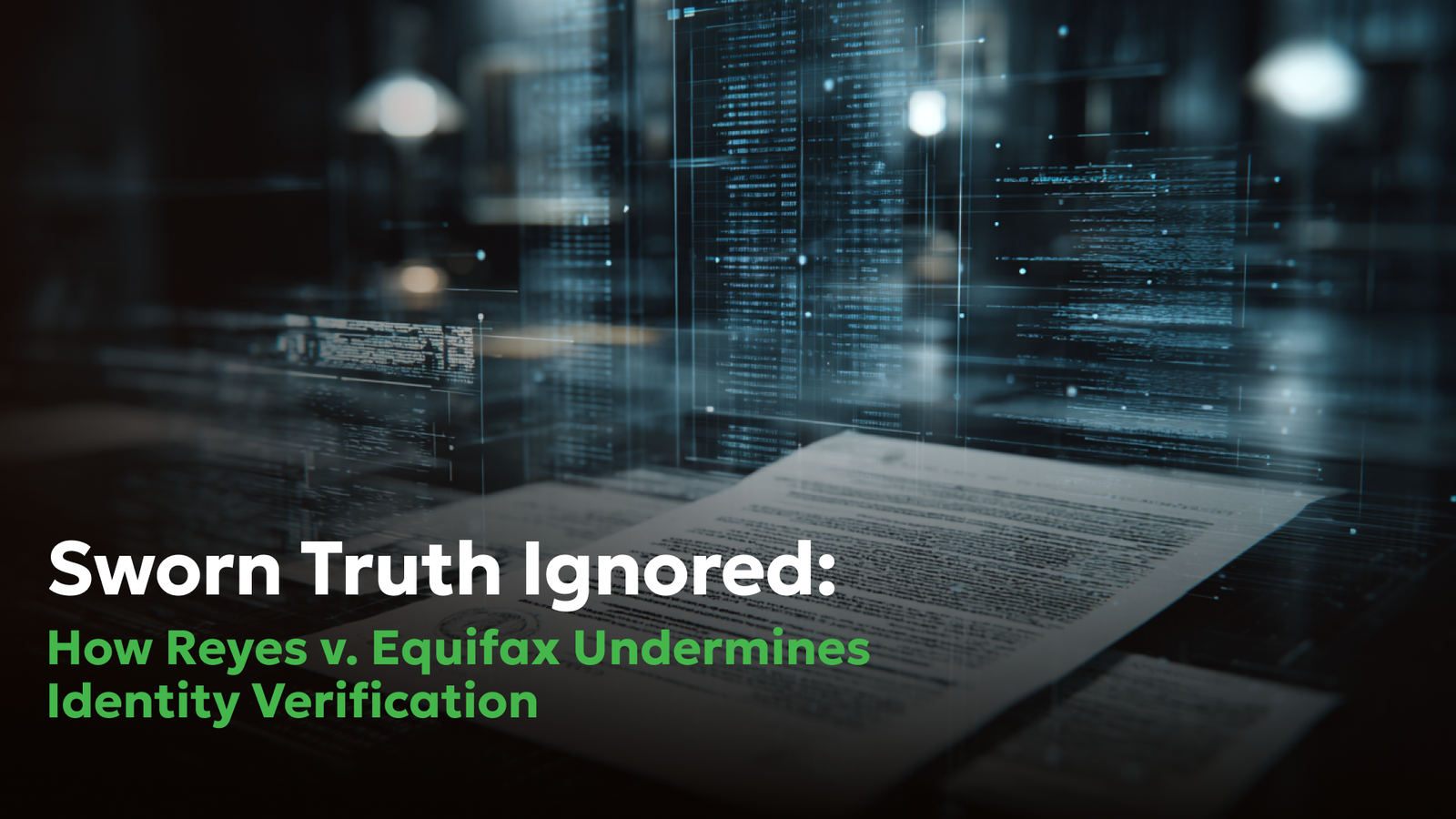States with the Most and Least Identity Theft
- Blog
- Credit Report Identity Theft
States with the Most and Least Identity Theft

Are you living in an identity theft hotspot? Consumer Attorneys can help you fight back no matter where you live.
By examining states with the highest and lowest incidents of identity thefts, this article provides an overview of what makes an area appealing to identity thieves. If you’ve been the victim of identity theft, Consumer Attorneys has got you covered from coast to coast. From consultation to conclusion, you pay nothing out of pocket.
According to the National Council on Identity Theft and Protection, there is a new victim of identity theft every 22 seconds. Pause here for 22 seconds. In the time you just paused, someone’s life is on the cusp of being upended and thrown into turmoil. The effects of identity theft are devastating. It is a crime that affects and erodes nearly every component of your life for a very long time. Identity theft affects victims financially, emotionally, mentally, and physically, and those effects are profound.
As consumer protection attorneys, we see the devastating effects of identity theft every day. We have represented thousands of people in courts from coast to coast who have been victimized by identity theft and who have lost the opportunities, money, enjoyment, tranquility, and mental health they deserve from having their identities stolen. This article provides an overview of what we have seen and what we have learned in representing victims of identity theft. We also provide the latest statistics on states most vulnerable to identity theft and those least vulnerable to identity theft. While we do not expect you to relocate from a high-risk state to a lower-risk state, the data does give us some insight into how identity thieves function and how they choose targets.
Key Findings
The key findings from our years of representing identity theft victims can be summed up rather succinctly and simply. While there are trends and patterns, there is really just one hard and fast rule.
Identity Theft Knows No Bias
Identity thieves do not play favorites. Similarly, there is no one type of identity thief. What’s even more confounding is that there is no single way identity thieves look for their opportunities.
- The thieves. Identity thieves can be a group of sophisticated villains reliant on and savvy with high-tech methods of stealing your identity. Identity thieves can also be ordinary average citizens who happen to stumble upon someone’s Personally Identifiable Information (PII) when they use a public computer at the library or hotel lobby.
- The methods. There are many ways that your identity can be stolen. Thieves can breach a retailer or online service that stores your PII and steal it from that retailer or online service. Thieves can trick you into giving them your PII themselves using well-crafted and well-honed psychological phishing tactics. Thieves can hack into your computer. Sometimes, thieves want your PII so they can open credit cards in your name. Sometimes, thieves want your PII and health information so they can use your identity to get prescription drugs. Other times, they want your PII to file fraudulent tax returns and get a refund in your name.
- The victims. While our analysis of our work across the United States reveals some trends, what also becomes clear is that anyone can be a victim. Identity thieves love stealing children’s identities because a child’s credit report is generally blank, and a child is unlikely to apply for a loan to prompt a review of their credit report. So thieves have ample time to open new credit lines in the child’s name. But just as significantly, identity thieves also love elderly people. Elderly people tend not to be as tech-savvy and adept at cybersecurity as younger people. Gaining access to an elderly person’s online accounts can also be more lucrative than some. With all that said, the group most victimized by identity theft are 30-39-year-olds, due in large measure to the fact that they are among the most active online with both available credit and sizable income.
Identity thieves do not discriminate. They are also very smart. Because for many, theft is their job, they spend a great deal of time honing their skills and identifying new ways to hack, new ways to convince someone to share their PII, or new sources of large quantities of PII. They spend more time thinking about how to steal than the average citizen spends trying to thwart their efforts. They know they always have to stay one step ahead. So they do.
The Top 10 States with the Highest Vulnerability to Identity Theft
As identity theft attorneys, we can attest that the impact of identity theft is felt in every corner of the country. However, states across the U.S. do not experience identity theft at the same rate. Let’s discuss the states with the most identity theft:
1. California
California had nearly 400,000 incidents of identity theft in 2023. California is not only the most populous state, but its economy is also highly tech-centric.
2. Texas
More than 313,000 Texans had their identities stolen in 2023. Texas has both a booming economy and millions of people, so it is a hotspot for identity thieves.
3. Florida
Just under 295,000 Floridians had their identities stolen last year. Florida is vulnerable because of its elderly population and its allure as a retirement destination. New retirees tend to have both sizable savings, new addresses, and less cybersecurity proficiency than younger people.
4. New York
New York had just over 210,000 citizens who had their identity stolen in 2023. New York’s vast population and economic significance help make it a target.
5. Pennsylvania
Just under 155,000 Pennsylvanians were victims of identity theft last year. Pennsylvania’s diverse population, urban centers, and affluent suburbs make it a target for identity thieves.
6. Georgia
Georgia had just over 150,000 identity thefts in 2023. Interestingly, Georgia had the highest per capita rate of identity theft in the whole country, with 1,421 identity thefts for every 100,000 people. The population surge in Atlanta, along with the surge of new companies and new digitization, has prompted a surge in identity thefts. While not in the top 10, the state with the second highest rate of identity theft per capita is Maryland. Maryland had 1,415 identity thefts for every 100,000 people. Maryland is the wealthiest state in the union per capita. That and its proximity to Wahington, D.C., make it a target of identity theft.
7. Illinois
Illinois had more than 136,000 identity thefts in 2023. Like New York, Illinois has a huge population, and its largest city, Chicago, makes it the epicenter of commerce in the Midwest.
8. Ohio
Nearly 115,000 Ohioans were victims of identity theft in 2023. Ohio has had a traditionally industrial economy. Its shift to digitization makes it a target for identity thieves.
9. North Carolina
North Carolina saw almost 110,000 identity thefts last year. Its demographic mix, including a significant retiree population, makes it very appealing for identity thieves. Furthermore, the state's growing reliance on digital platforms adds to its vulnerability.
10. New Jersey
Its large population, its proximity to New York City, and its affluent suburbs led to New Jersey being the site of more than 98,000 identity thefts last year.
The Top 10 States Least Vulnerable to Identity Theft Crimes
While none of the states with the fewest number of identity thefts had more than 20,000 identity thefts, due largely to each state’s low population, many were among the states with the highest number of identity thefts per capita.
1. Wyoming
Wyoming’s low population and rural lifestyle make it one of the states least vulnerable to identity theft. The state’s minimal reliance on digital infrastructures limits opportunities for cybercriminals, resulting in just over 4,200 identity theft last year.
2. North Dakota
North Dakota saw only 4,637 identity thefts last year. its strong sense of community and low population density act as deterrents against identity theft. Additionally, North Dakota’s economy relies less on digital transactions, which further reduces the risk.
3. South Dakota
South Dakota’s smaller population and lower national profile contribute to its lower incidence, just 4,854 in 2023, of identity theft. South Dakota’s community-oriented approach to doing business and reduced reliance on digital transactions play a protective role in safeguarding against such crimes.
4. Vermont
Vermont experienced fewer identity theft cases, with just under 5,300 identity thefts last year, due in large measure to its tight-knit communities and rural landscape. The state's emphasis on local interactions over digital ones provides a natural buffer against such crimes.
5. Alaska
Alaska’s geographic isolation and unique demographic characteristics contribute to its lower risk of identity theft - just under 8,500 last year. The state's communities often rely on traditional forms of communication and transactions.
6. Montana
Montana's expansive open spaces and smaller urban centers contribute to its lower incidence of identity theft. The state's lifestyle, which often prioritizes face-to-face interactions, serves as a protective factor in preventing such crimes.
7. Rhode Island
Rhode Island’s close-knit communities contribute to its lower risk of identity theft. The state's residents tend to prefer traditional transactions over digital ones, providing an added layer of security.
8. New Hampshire
New Hampshire’s strong legal frameworks, community-oriented lifestyle, and lower reliance on digital transactions contribute to its position as one of the least vulnerable states to identity theft.
9. Nebraska
Nebraska’s rural character and emphasis on community and traditional values help safeguard its residents from identity theft. The state's digital infrastructure is less targeted by cybercriminals due to these factors.
10. Delaware
Even though it was one of the states with the fewest number of identity thefts, Delaware ranked third in reports of identity theft per capita, with 1,410 identity thefts per 100,000 people.
Analyzing Vulnerability: A State-by-State Examination
Identity theft is a complex issue. Many factors foster identity theft - factors such as population density, population wealth, economic activities, and digital infrastructure play significant roles in determining a state's vulnerability. Individuals and authorities alike must recognize and address these variables to mitigate the risk of identity theft.
Call or Write Us to Protect Your Identity
Our national presence puts us at the forefront of the fight against identity theft. Our experience with consumer protection puts us at the forefront of helping people who have had their identities stolen. Contact us if you have had your identity stolen or suspect that it might be stolen (like if you get a notice from a retailer or bank or anyone with whom you’ve done business that it has suffered a data breach).
An experienced attorney will guide you in all the steps necessary to recover your identity. That will likely include police reports and disputing all the fraudulent transactions and accounts with the credit reporting companies. We know how to do this, and we do it well. But inevitably, some cases need legal intervention to be settled. We can do that also, including suing uncooperative consumer reporting agencies.
Contact us by:
- Emailing us at info@consumerattorneys.com to request a meeting with an attorney.
- Calling us at 1-877-615-1725.
We can mitigate the damages, negotiate a fair settlement, and support you the entire way.
Frequently Asked Questions
While different states have different definitions for identity theft under their respective state criminal statutes, identity theft is pretty broadly and universally defined as the unauthorized use of another person’s personal information to commit fraud, theft, or some other crime. States typically report their identity theft to the Federal Trade Commission. However, some victims might call their local police, other victims might call the FBI, and some victims might not tell anyone and just put a freeze on their credit reports. This highlights the difficulty of the broad scope and omnipresent problem of identity theft.
Identity thieves can use anything to benefit themselves. But for identity thieves intent on financial crimes, the main target is likely your Social Security Number (SSN). With an SSN, identity thieves can obtain credit cards, loans, and other financial benefits in your name. Thieves can also obtain unemployment benefits with your SSN, get tax refunds in your name, and other government benefits. However, with a little bit of your health information, identity thieves can obtain prescription drugs or medical care in your name. The financial theft that accompanies the theft of your SSN is what can do the most damage to your credit report, and that often requires the help of Consumer Attorneys.
Nationally, there is a rise in identity theft incidents, emphasizing the need for everyone to be vigilant in guarding their personally identifiable information and checking their credit reports routinely to look for any unauthorized credit accounts or other transactions. Identity theft is a constantly evolving crime. As people learn about the tactics of identity thieves and figure out how to defend themselves against them, identity thieves learn new ways to steal identities. Trends can depend on new technology, larger societal trends, law enforcement tactics, and consumer awareness. If you have been the victim of identity theft, contact an experienced consumer protection attorney.
Definitely! The experienced attorneys at Consumer Attorneys are always eager to talk with consumers. We take as much pride in preventing identity theft as we do in recovering compensation from the consumer reporting agencies when they mishandle your information following an identity theft. It is never too early to contact a consumer protection attorney. With Consumer Attorneys, you only pay us if we recover anything on your behalf to compensate you for damages.
Various federal and state law enforcement and government agencies typically update their identity theft statistics annually. Various state agencies, the Federal Trade Commission, the Federal Bureau of Investigation, and the Bureau of Justice Statistics create detailed reports on identity theft to keep track of identity theft trends and tactics, gauge what law enforcement strategies work to thwart identity theft, and identify new hotspots for identity theft. Consumer Attorneys closely monitors these reports also. Our experienced attorneys can adjust their strategies to best serve our clients.


Daniel Cohen is the Founder of Consumer Attorneys. Daniel manages the firm’s branding, marketing, client intake and business development efforts. Since 2017, he is a member of the National Association of Consumer Advocates and the National Consumer Law Center. Mr. Cohen is a nationally-recognized practitioner of consumer protection law. He has a we... Read more
Related Articles




R
ONGS™You pay nothing. The law makes them pay.






